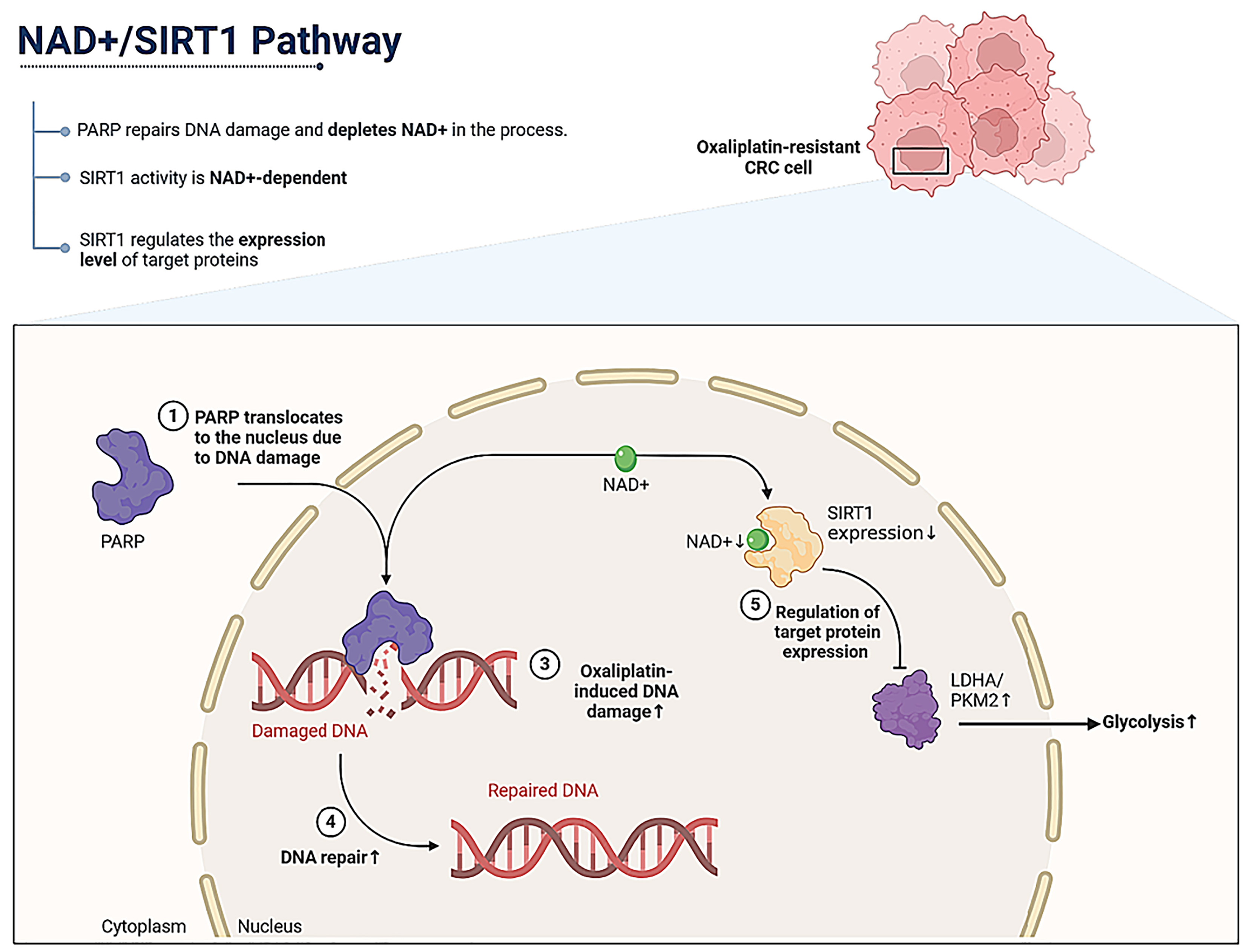Copyright
©The Author(s) 2025.
World J Gastroenterol. Mar 21, 2025; 31(11): 100785
Published online Mar 21, 2025. doi: 10.3748/wjg.v31.i11.100785
Published online Mar 21, 2025. doi: 10.3748/wjg.v31.i11.100785
Figure 8 Schematic diagram of SIRT1 inhibition-driven glycolysis and oxaliplatin resistance in colorectal cancer cells.
DNA damage, a crucial driver of increased glycolysis in colorectal cancer (CRC) cells, exerts its effect primarily through PARP activation, which depletes intracellular NAD+, thereby inhibiting SIRT1 expression. Enhanced glycolysis in CRC cells via SIRT1 inhibition, which contributes to oxaliplatin resistance. CRC: Colorectal cancer.
- Citation: Niu YR, Xiang MD, Yang WW, Fang YT, Qian HL, Sun YK. NAD+/SIRT1 pathway regulates glycolysis to promote oxaliplatin resistance in colorectal cancer. World J Gastroenterol 2025; 31(11): 100785
- URL: https://www.wjgnet.com/1007-9327/full/v31/i11/100785.htm
- DOI: https://dx.doi.org/10.3748/wjg.v31.i11.100785









